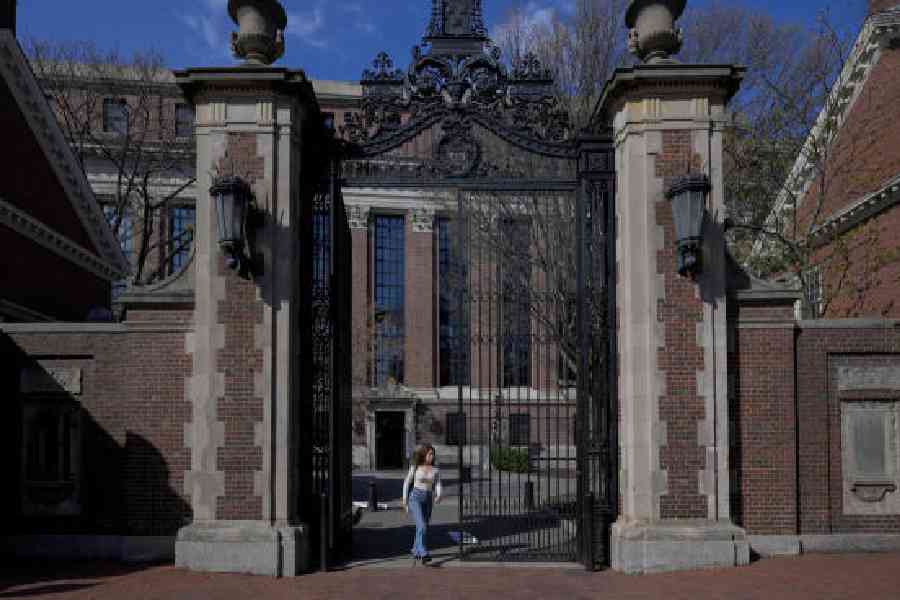President Donald Trump said on Friday that Harvard would lose its tax-exempt status, repeating his intent to enlist the Internal Revenue Service in his feud with the wealthy research university and upend the school’s finances.
“We are going to be taking away Harvard’s Tax Exempt Status. It’s what they deserve!” Trump wrote on social media.
It was not immediately clear if the IRS was in fact moving forward with revoking Harvard’s tax-exempt status, a change that could only typically occur after a lengthy process. Federal law prohibits the President from directing the IRS to conduct tax investigations, and IRS employees who receive such a command are required to report it to an inspector general.
After Trump first publicly called for Harvard to lose its tax exemption last month, White House officials said that the IRS would make its own conclusion about whether to do so.
Spokespeople for the IRS and treasury department, which oversees the tax collector, did not respond to a request for comment. A Harvard spokesperson said in a statement that there was “no legal basis to rescind Harvard’s tax-exempt status” and that “such an unprecedented action would endanger our ability to carry out our educational mission”.
With its tax-exempt status, Harvard not only does not have to pay most taxes, but donors can write off gifts to the school on their own tax returns. Losing the status would not only force Harvard to start paying tax to the federal government but could cause donations to dry up.
The intensifying standoff between the Trump administration and Harvard is part of a broad pressure campaign by the administration against some of the nation’s most elite universities.
The Trump administration has painted many top US schools as hotbeds of antisemitism and discrimination
that require federal intervention.
In recent weeks, Harvard has taken a decidedly confrontational posture towards the Trump administration. The university rejected a roster of demands from the government, including that it submit to audits, alter its admissions and hiring policies and bring in an outsider to examine “those programs and departments that most fuel antisemitic harassment or reflect ideological capture”.
After the administration froze more than $2 billion in federal funds in retaliation for Harvard’s defiance, the university sued.
On Thursday night, Trump addressed the 2025 graduates of the University of Alabama, vacillating between campaign rally material and a commencement speech as he used his past political grievances to encourage students to fight for their futures.
Addressing the students at Coleman Coliseum in Tuscaloosa, flanked by signs that read “The American Dream Is Back”, Trump told students they were “the first graduating class of the golden age of America”, and used his comeback story to encourage the students to trust their instincts and be ambitious as they navigate the world.
“In recent years, too many of our young people have really been taught to think of themselves as victims, and blame people, and be angry,” he said.
“But in America, we reject that idea that anyone is born a victim. Our heroes are the ones who take charge of their own destiny, make their own luck and determine their own fate, despite the odds.”
At points in the address, the President rattled off familiar advice for college graduates. But Trump — who acknowledged that he did not use his teleprompter for much of the speech — veered off into various rants that echoed the blitz of political appearances he has put in this week to celebrate his 100th day in office. The largely receptive crowd often cheered at the scattershot injection of issues from the price of eggs to transgender rights, a microcosm of an era when even the pablum of a graduation speech cannot escape the politics of the moment.
New York Times News Service











